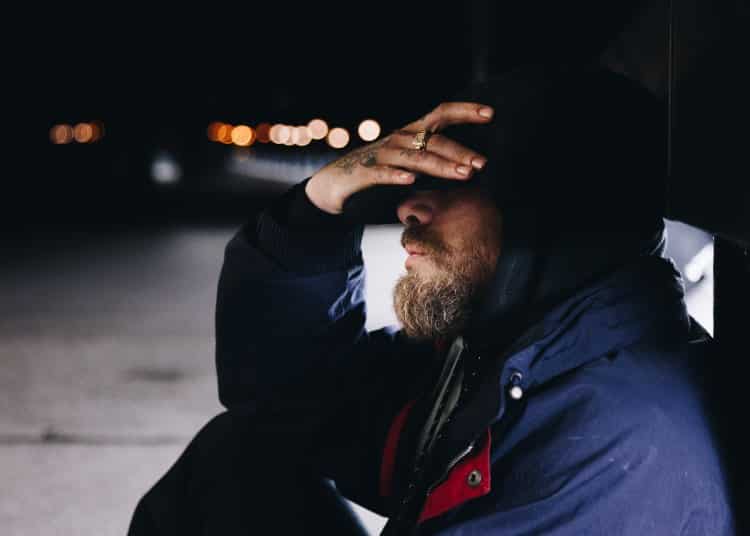Heroin Rehab
Call Now
San Diego Heroin Rehab
People who become addicted to Heroin gradually lose more and more of themselves to the drug. Their physical health, relationships, and professional goals all suffer from the addiction. With nothing left but the drug, Heroin addicts can’t imagine life without it.
At our San Diego Heroin Rehab, we can show you that life in recovery from Heroin addiction can be joyous. We show our clients that living a life in recovery from addiction is by far more fulfilling than a person who is active in their addiction could possibly foresee. Our expert staff can show you how to live without drugs.
We get to the root causes of why a person began using drugs. By examining the issues that the addict sought to overcome with heroin we can introduce healthy alternatives. We teach our clients how to use coping skills and supportive communities to help them deal with heroin cravings and learn to live a Healthy Life.
Heroin Addiction
The shadow of death always follows Heroin addiction. As addiction rates rise, so do overdose deaths. Between 2002 and 2013, overdose deaths caused by Heroin quadrupled. In 2013 more than 8,200 people died from a heroin overdose. Because of the inconsistencies in the purity of street heroin, a user can never know how powerful the drug is until they use it. This, coupled with the increasing amount of fentanyl appearing in illicit drugs has created a deadly situation that claims more lives each year.

Heroin Addiction Treatment
Heroin use hacks a person’s brain chemistry and causes a flood of dopamine to be released. Dopamine is a naturally occurring brain chemical that is used in the reward system of a person’s brain to create feelings of contentment and euphoria. When doled out correctly dopamine rewards a person for making choices that contribute to their survival. Dopamine is released after a good night’s sleep, exercising, eating nutrient-rich foods, and having sex. When functioning properly, dopamine imprints a positive memory on these activities and encourages a person to continue these activities. In many ways, this chemical reward system is responsible for a person’s survival.
Heroin subverts this natural reward system by releasing massive amounts of dopamine when Heroin is used. Not only does this create an incredibly powerful euphoric sensation, but the memory of this euphoria is forever remembered by the user. This is why heroin addiction is so hard to overcome.
Heroin users become physically addicted to the drug and their mind becomes restructured to equate heroin use with their survival. When recovering from a heroin use disorder, an addict will need to dedicate a substantial amount of time and energy to reversing this psychological programming.
To treat heroin addiction effectively, a combination of treatments should be utilized. The most successful treatments for heroin addiction incorporate psychotherapy, support groups, and medication. At our heroin treatment center in San Diego, we offer these forms of treatments and more to help our patients successfully recover from their addiction.

Psychotherapy for Heroin Addiction
These relapse-prone addicts benefit from learning to moderate their expectations on life in order not to become frustrated and stressed out when things don’t go their way. By delving into the deep dissatisfaction with life that typically accompanies addiction, an addict can take steps to be more at ease with their environment and those around them.
Support Groups for Heroin Addiction
Many people are aware of organizations like Narcotics Anonymous, but other groups have cropped up to offer new options for people looking for other ways to surround themselves with a support system. Groups like SMART Recovery and Secular Organizations for Sobriety (SOS) offer support groups that aren’t as focused on spirituality.


Medication for Heroin Addiction
These medications affect the opioid receptors in the brain as agonists or antagonists. Opioid agonists are medications that attach themselves to these receptors and produce an opiate-like effect, thus reducing withdrawal symptoms and allowing the addict to function more effectively.
Opioid antagonists attach to the brain’s opioid receptors and block the effects of heroin and other opiates, thereby reducing drug cravings. Different medication-assisted treatments can be utilized during different phases of an addict’s recovery process. These medications have been proven to increase retention rates in addiction treatment centers and reduce relapse rates in recovering heroin addicts.
Detox from Heroin
The symptoms of withdrawal typically last about seven days. The worst symptoms typically manifest between 2 to 5 days after the addict last used. Common symptoms are nausea, vomiting, diarrhea, muscle aches, and cramps.
Medications are used during medical detox to help an addict overcome these symptoms. Medical professionals can also ensure the addict remains properly hydrated through the process and that no dangerous medical complications occur.


Outpatient Treatment
for Heroin Addiction
Our San Diego Intensive Outpatient Program provides structure and support for people reintegrating back into their daily life. During the outpatient process, our clients will be able to work through their experience with Post-Acute Withdrawal Symptoms (PAWS) and get support from psychological professions for any issues that they may encounter in early sobriety.
Think you may have an issue with drug addiction?
Opioid-Related Blogs
Risks of Mixing Gabapentin and Tramadol
The combination of gabapentin and tramadol is one that requires caution and medical supervision due to the increased risk of severe side effects, including respiratory depression, coma, and even death. Understanding the pharmacological profiles and interactions of...
How Long Does it Take to Detox from Fentanyl?
Embarking on the journey to detox from fentanyl is a significant step toward reclaiming one's health and well-being. It's a path marked by challenges and triumphs, requiring courage, commitment, and an understanding of what lies ahead. Fentanyl, a potent opioid many...
Understanding Gabapentin: Use, Misuse, Side Effects & Withdrawal
Understanding Gabapentin: Use, Misuse, Side Effects & Withdrawal Table of Contents What Is Gabapentin? Gabapentin is a medication primarily used to help control and prevent seizures (convulsions) to treat epilepsy and relieve pain for certain conditions in the nervous...

Medically Reviewed By:
Dr. Sanjai Thankachen
Dr. Sanjai Thankachen graduated from Adichunchanagiri Institute of Medicine in 2000. He completed his residency in psychiatry in 2008 at Creedmoor Psychiatric Center in New York. Dr. Thankachen is currently working with Pacific Neuropsychiatric Specialists in an outpatient practice, as well as working at multiple in-patient psychiatric and medical units bringing his patients the most advanced healthcare treatment in psychiatry. Dr. Thankachen sees patients with an array of disorders, including depression, bipolar illness, schizophrenia, anxiety, and dementia-related problems.

Edited for Clinical Accuracy By:
Sean Leonard, Psychiatric Nurse Practitioner
Sean Leonard is a board-certified psychiatric nurse practitioner. He received his master’s degree in adult geriatric primary care nurse practitioner from Walden University and a second postmaster specialty in psychiatry mental health nurse practitioner from Rocky Mountain University. Sean has experience working in various diverse settings, including an outpatient clinic, inpatient detox and rehab, psychiatric emergency, and dual diagnosis programs. His specialty areas include substance abuse, depression, anxiety, mood disorders, PTSD, ADHD, and OCD.



